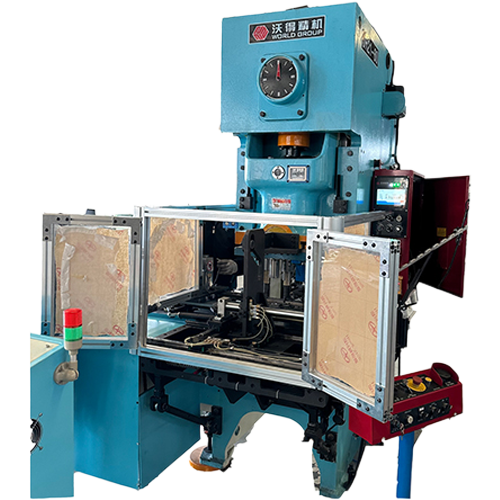Efficiency and precision: How tin can sealers are revolutionizing the packaging industry
In today's packaging world, the role of canning machines is crucial. Not only are they used to seal metal cans, they also ensure that the contents inside remain fresh, safe, and resistant to external factors. Let's explore how these machines are changing the way packaging is done, increasing efficiency and precision.
The easy-pull can sealing machine reflects the characteristics of automated production and can complete high-speed sealing operations with extremely high efficiency. This automation significantly reduces the time required to seal each easy-pull can, which is a crucial advantage in large-scale production environments. The ability to complete the sealing of easy-pull cans quickly and consistently is key to meeting market demand.
The distinctive feature of the can sealer is its ability to provide a consistent and precise seal for every can. The mechanical devices and sensors integrated inside these machines ensure the uniformity of the closure, thus guaranteeing the quality and safety of the product. Maintaining this level of precision is crucial to meeting consumer expectations.
The automated nature of these machines means that labor costs are reduced. By reducing the need for human intervention, these machines help achieve significant cost savings. Furthermore, automation reduces the risk of human error during the sealing process, thereby improving overall efficiency and cost-effectiveness.
Modern can sealers are designed to be very flexible and can adapt to a variety of cans of different sizes and styles. Its ease of adjustment to suit different can sizes greatly increases the flexibility of operation. Manufacturers are able to easily convert to different packaging needs, thereby optimizing production efficiency.
With advanced quality control mechanism, the tin can sealing machine is able to identify abnormal conditions during the sealing process. Detection of insufficient seal integrity or foreign matter ensures that only sealed jars can continue along the production line. This guarantees a high level of packaging quality for the final product.
These machines play an important role in reducing waste by being able to seal cans precisely and consistently. A properly sealed can reduces the likelihood of product spoilage, thereby reducing overall waste. This implies resource savings and increases cost-effectiveness by reducing the need to replace equipment.
Can sealers are able to cooperate with other equipment on the production line (such as filling machines and labeling machines). This integration optimizes the entire packaging process, ensuring smooth and synchronized operations. This tight operating process increases the efficiency of the entire production line.
Manufacturers design tin can sealing machines to comply with industry standards and regulatory requirements related to food safety and packaging. This adherence to compliance ensures that products are packaged in accordance with prescribed specifications and comply with legal and safety standards.
In conclusion, tin can sealers are driving changes in the packaging field, significantly improving efficiency and accuracy. Thanks to their automated, stable and flexible operation, these machines are able to meet the dynamic demands of modern packaging, providing high-quality, safe and affordable solutions for a wide range of products.

Recommended Products


 EN
EN
 中文简体
中文简体 English
English













